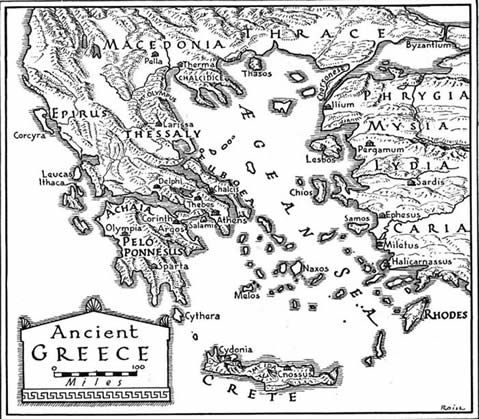
The department of Classical Studies has a strong commitment to providing several opportunities for students to experience Classics from an international perspective. Whether it is links with other educational institutions or supplying information on study and excavation possibilities, the department does its best to help fully round out an academic experience and to provide some essential experiential learning.
You can only learn so much in a classroom: the only true way to experience the ancient cultures of Greece and Rome is to travel to these lands, see their great cities and monuments and to visit museums the world over to study the art and artefacts that they have left behind. To walk where the ancients walk and to breathe the same air they did, truly makes these great cultures come alive.
CLAS 390/695
Given that the department of Classical Studies is focused on cultures in the Mediterranean, we have a strong commitment to first hand experiences in these countries. The department offers a special study-travel course (CLAS 390) in the Spring term where students visit a variety of archaeological and historical sites, as well as museums, chiefly in Greece, Italy and Turkey. The course carries academic credit and is conducted by one of the Departmental faculty members.
CIG internship
The Department of Classical Studies, and the Canadian Institute in Greece (CIG), also proudly offers a Work Placement opportunity for our students: the CIG internship. The successful candidate will work in Athens, Greece from ca. mid-January – mid-April as an intern at CIG.
Other opportunities
In addition, the Department does its best to facilitate other overseas opportunities for the student to experience the realm of the classical civilizations firsthand. We collect and disseminate information on archaeological field schools and study abroad programs and we frequently accept for credit suitable fieldwork carried out by the student. In recent years Waterloo students have enjoyed such opportunities as: summer study and travel in the Greek islands; working with the excavation team at Carthage in North Africa; and excavating in the Athenian Agora, the heart of the ancient city.
Lastly, the department has strong educational links with the Universities of Edinburgh and Essex. Students have travelled to these universities for conferences and even decided to pursue graduate studies there. These opportunities, as well as many others, illustrate the strong commitment that the department has in providing as international an experience as possible.